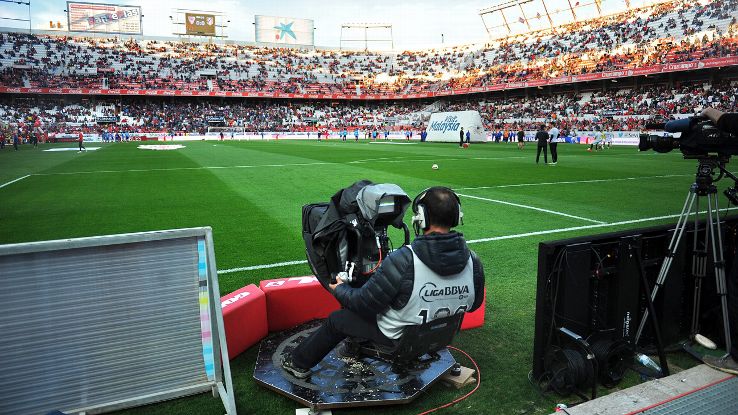The Battle for Broadcasting Rights in La Liga: A Game of Money and Influence

In the world of sports, broadcasting rights are not just about televising games; they are about power, revenue, and global reach. La Liga, Spain’s top professional football league, exemplifies this dynamic through its ongoing saga for broadcasting rights. This article delves into the intricacies of La Liga’s broadcasting deals, the stakeholders involved, and the implications for fans and the league itself.
The Evolution of La Liga Broadcasting Rights
La Liga, home to football giants like Real Madrid and FC Barcelona, boasts a rich history and a massive global following. Over the decades, broadcasting rights have become a critical source of revenue for the league, clubs, and broadcasters alike. The evolution of these rights reflects broader trends in media consumption and sports economics.
Traditionally, broadcasting rights were sold domestically to Spanish networks, ensuring widespread coverage within the country. However, with the rise of international interest and digital platforms, La Liga began to explore global distribution deals. These deals not only expanded its viewer base but also significantly boosted revenue streams.
The Major Players: Broadcasters and Stakeholders
At the heart of the La Liga broadcasting rights battle are several key players:
- Domestic Broadcasters: In Spain, broadcasters like Movistar, Mediapro, and RTVE compete fiercely for the rights to broadcast La Liga matches. These deals are often worth hundreds of millions of euros, illustrating the financial stakes involved.
- International Partners: La Liga’s popularity extends far beyond Spain’s borders, attracting interest from broadcasters worldwide. Deals with networks in the UK, Asia, and the Americas bring in substantial revenue and expose the league to a global audience.
- Digital Platforms: The emergence of streaming services such as Amazon Prime Video and DAZN has revolutionized sports broadcasting. La Liga has embraced these platforms to reach younger audiences and fans who prefer on-demand viewing.
- Clubs and League Management: For La Liga clubs, revenue from broadcasting rights is crucial for player acquisitions, stadium improvements, and operational costs. The league itself uses these funds to invest in grassroots development, infrastructure, and marketing efforts.
The Impact on Fans and Viewership
The distribution of broadcasting rights has a direct impact on how fans engage with La Liga:
- Access and Affordability: Domestic deals determine which networks carry matches, affecting accessibility for Spanish fans. International deals influence availability and pricing for viewers abroad, shaping the global fan experience.
- Viewer Experience: The shift towards digital platforms offers flexibility but also raises concerns about subscription costs and streaming quality. Traditional TV broadcasts, while reliable, may struggle to compete with the convenience of online streaming.
- Global Reach: By partnering with international broadcasters and digital platforms, La Liga enhances its global presence. This strategy not only boosts revenue but also cultivates a diverse fan base across continents.
Challenges and Future Trends
Despite its successes, La Liga faces several challenges in the broadcasting arena:
- Piracy and Illegal Streaming: The digital age has facilitated widespread piracy, undermining legitimate broadcasting deals and revenue streams. La Liga must combat piracy through technological solutions and legal measures. you may also like to know about https://lctv2020.com/
- Competition from Other Leagues: European leagues like the Premier League and Serie A pose formidable competition for viewership and broadcasting revenue. La Liga must innovate to maintain its standing in the global football landscape.
- Technological Advancements: The rise of virtual reality (VR) and augmented reality (AR) presents new opportunities for immersive fan experiences. Embracing these technologies could redefine how audiences interact with La Liga matches.
Conclusion
In conclusion, La Liga’s quest for broadcasting rights exemplifies the modern intersection of sports, media, and technology. As the league navigates domestic rivalries, international expansions, and digital disruptions, its decisions shape not only its financial future but also the fan experience worldwide. The battle for broadcasting rights is not just about airing matches; it’s a strategic game of money, influence, and the pursuit of global dominance in the realm of football entertainment. you may also like to know about https://lctv2020.com/



